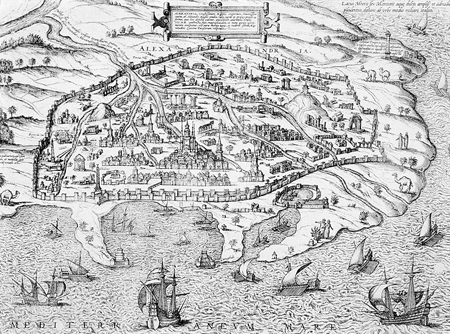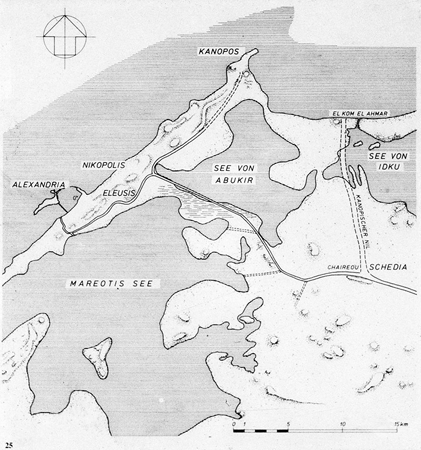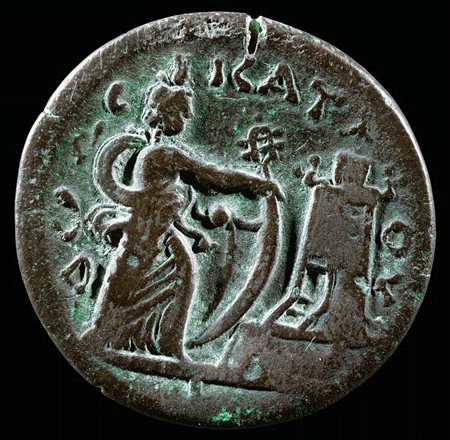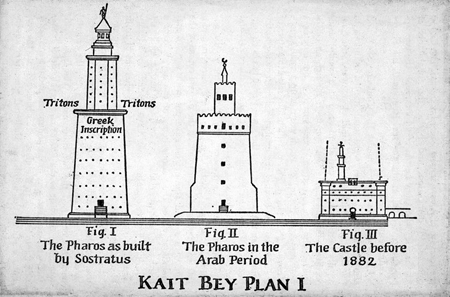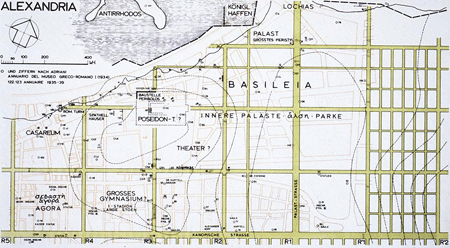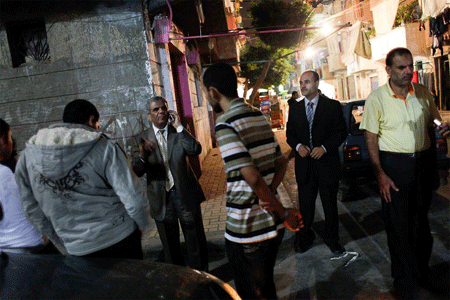Alexandria, The City
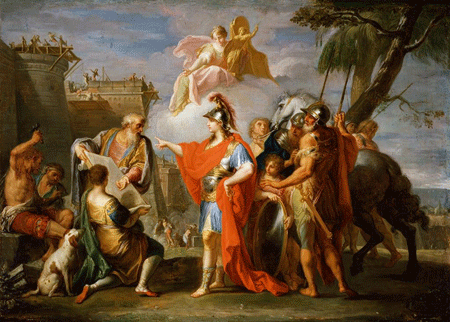
Placido Costanzi |Alexander the Great Founding Alexandria; 1736-1737 | The Walters Art Museum
Marlene Nakagawa, Undergraduate student at the University of Oregon
During his ongoing series of campaigns, Alexander the Great founded or renamed nearly twenty cities after himself. From Pakistan to Turkey, these cities stood as a representation (as if one was necessary) of his omnipresence in the ancient world. Over the centuries, most of the Alexandrian cities have been destroyed, renamed, or absorbed into other territories. However, west of the Nile Delta stands Alexander’s lasting triumph: Alexandria, Egypt’s largest seaport and a dynamic force in the country’s ancient and modern economy.
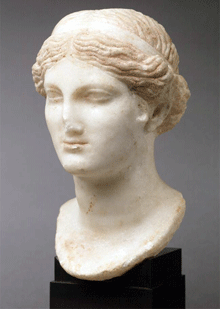
Egyptian, Alexandria | Head of a woman (Arsinoe II or Arsinoe III); 3rd century B.C. | Seattle Art Museum
In the port of Alexandria, hidden beneath the Mediterranean, lie the remnants of one of the Seven Wonders of the Ancient World. In the 3rd century B.C.E., the Lighthouse of Alexandria (or the Pharos of Alexandria) was built on the island of Pharos by the Ptolemies, who reigned over Egypt from 323 B.C.E to 30 B.C.E. It was the first lighthouse in the world, and its height was second only to the Great Pyramid of Giza (another Wonder of the Ancient World). Perhaps this monument explains why Alexandria was often personified as the mistress of the sea: the lighthouse waited at the edge of the city, looking out for ships like Penelope for Odysseus, ready to guide them safely home.
Since Alexander the Great, the Ptolemies, and those who came before them, many have answered the call of Alexandria’s shore. Constantine P. Cavafy was born to Greek parents in Alexandria in 1863 and spent the majority of his life there. As he writes in his poem The City:
You won’t find a new country, won’t find another shore.
This city will always pursue you. You will walk
the same streets, grow old in the same neighborhoods,
will turn gray in these same houses.
You will always end up in this city. Don’t hope for things elsewhere:
there is no ship for you, there is no road.
- Alexandria.,Map; 1619 | Image and original data provided by Bryn Mawr College
- Water Supplies of Ancient Alexandria, Map | Image and original data provided by Bryn Mawr College
- Coin from period of Antoninus Pius; verso with Isis holding sail and sistrum, lighthouse of Pharos, and inscription in Greek; 2nd cent. CE | National Maritime Museum, Haifa, Israel | Image and original data provided by Erich Lessing Culture and Fine Arts Archives/ART RESOURCE, N.Y.; artres.com
- Sostratos of Cnidus | Alexandria. Pharos Lighthouse. Qaitbay fortress 1) by Sostratus, 2) in Arab period, 3) castle before 1882 |Image and original data provided by Bryn Mawr College
- Alexandria. Plan, Central District | Image and original data provided by Bryn Mawr College
- Jason Larkin | Sobhi Saleh, surrounded by Muslim Brotherhood volunteers and members, tries to organise a campaigning session in his local constituency of al-Ramal; 2010 |© Jason Larkin / Panos Pictures; www.panos.co.uk
I visited Alexandria in the summer of 2011, four months after then-President Hosni Mubarak resigned his office as President of Egypt. Like many cities of the Old World, Alexandria faces the challenge of preserving its visibly rich history in the midst of ongoing development and a social and political revolution. To many, Alexandria is simply a city. But to others, whether it be an unidentified Ptolemaic princess of the 3rd century B.C.E., a couple walking along the Alexandrian coast in the 1990s, or Sobhi Saleh, a current Muslim Brotherhood member from Alexandria, she is “the City”; the mistress who will always be waiting for them at her shores, calling for them to return home.
Works Cited:
Forster, E M. Alexandria: A History and a Guide. Garden City, N.Y: Anchor Books, 1961. 111-198. Print.
Cavafy, Constantine, Edmund Keeley, Philip Sherrard, and Geōrgios P. Savvidēs. “The City.” C.P. Cavafy, Collected Poems. Princeton, NJ: Princeton UP, 1975. 28. Print.
